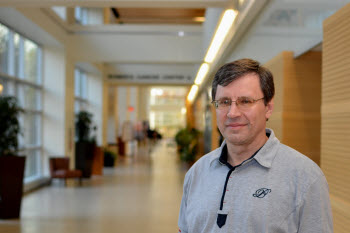Fox Chase Researchers Unlock Previously Inaccessible DNA Regions, Creating a Path for New Cancer Drug Discovery
FACT, a highly sought target of cancer drugs, is involved in many cellular processes including gene regulation and cancer development, but the mechanism of its action remained a mystery
 Vasily Studitsky, PhDPhoto courtesy of Fox Chase Cancer CenterPHILADELPHIA (November 7, 2016) – Researchers at Fox Chase Cancer Center have developed a method of uncovering and studying previously inaccessible DNA, which may enable major advances in research on a number of aggressive cancers. The study appears early online in the journal Nature Structural & Molecular Biology.
Vasily Studitsky, PhDPhoto courtesy of Fox Chase Cancer CenterPHILADELPHIA (November 7, 2016) – Researchers at Fox Chase Cancer Center have developed a method of uncovering and studying previously inaccessible DNA, which may enable major advances in research on a number of aggressive cancers. The study appears early online in the journal Nature Structural & Molecular Biology.
FACT, a highly sought target of cancer drugs, is involved in many cellular processes including gene regulation and cancer development, but the mechanism of its action remained a mystery. Vasily Studitsky, PhD, coleader of the Cancer Epigenetics Program at Fox Chase, led a team that discovered a new way for FACT to unspool DNA from the proteins (histones) that normally provide DNA packaging in the small volume of cell nuclei, exposing previously unreachable portions of DNA to interact with other regulatory proteins. Notably, when FACT was removed, the DNA reverted to its natural state with no after-effects.
“This is a breakthrough for basic cancer biology, which opens the door for further research and the development of a new generation of cancer drugs,” Studitsky said.
